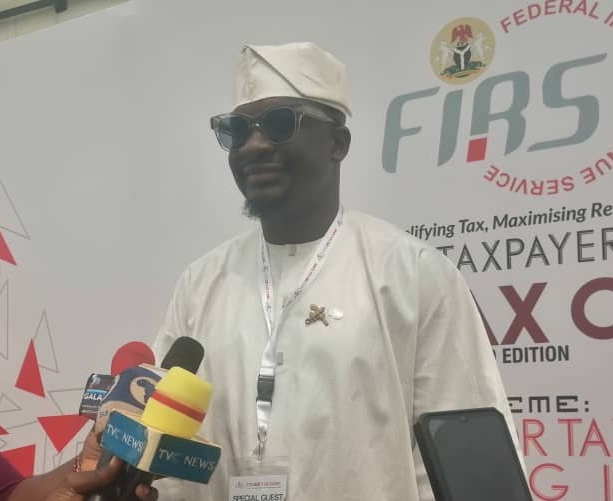By: Goodluck E. Adubazi, Abuja.
The Special Adviser on Communication and Advocacy to the Executive Chairman of the Federal Inland Revenue Service (FIRS), Mr. Collins Omokaro, has reiterated that the agency’s tax reforms are designed to promote prosperity, not punish productivity.
Speaking to journalists at the Emerging Taxpayers Group 2025 Tax Clinic held at the Nigerian Army Conference Centre, on Tuesday, October 28, 2025, in Abuja, Omokaro stated that the FIRS’ new customer-centric approach aims to simplify taxation, enhance compliance, and build public understanding of ongoing fiscal reforms.
“We are not taxing the seeds; we are taxing the fruits. We are not taxing poverty; we are taxing prosperity,” Omokaro declared. “That is the foundation of our reform agenda and why we are here today.”
He explained that the recent tax reform signed into law by President Bola Ahmed Tinubu, GCFR, embodies the administration’s commitment to inclusive economic growth. According to him, the FIRS believes that enforcement should be preceded by public enlightenment and education.
“Before you enforce as an institution, you must first provide palliatives, offer understanding, and teach people not just to pay taxes, but how and why to pay,” he said. “Our goal is to ensure taxpayers clearly understand the structure, approach, and purpose of the new system.”
Omokaro stressed that the reforms go beyond a change of name or logo, highlighting that the most critical transformation lies in institutional restructuring and policy direction.
“It is through knowledge and understanding that we can drive sustainable revenue growth. That’s what this engagement seeks to achieve,” he added.
The FIRS aide noted that no modern economy can thrive on debt, emphasizing the need for a stable, self-sustaining revenue base.
“There is no sustainable economy today that survives on debt. What we’ve seen in recent years — the steady growth in government revenue — is the result of reforms championed by the FIRS under Dr. Zacch Adedeji,” Omokaro said.
He further explained that maintaining a healthy revenue profile enhances Nigeria’s ability to attract affordable financing for infrastructure and development projects.
“You can’t finance infrastructure solely from your own revenue. Partner institutions and financial organizations only lend or grant support when they see that your economy is healthy and revenue is sustainable,” he stated.
Omokaro concluded that the new tax reforms are deliberately structured to support businesses, improve the ease of doing business, and promote economic growth.
The Executive Chairman – FIRS, Special Adviser on Communication and Advocacy who also moderated a panel sessions at the emerging taxpayer’s group, tax clinic, tax clarity, stated that
“When businesses thrive, revenue grows — and that’s when we collect taxes. That is why we say: we don’t tax seeds, we tax fruits; we don’t tax poverty, we tax prosperity,” he affirmed.

